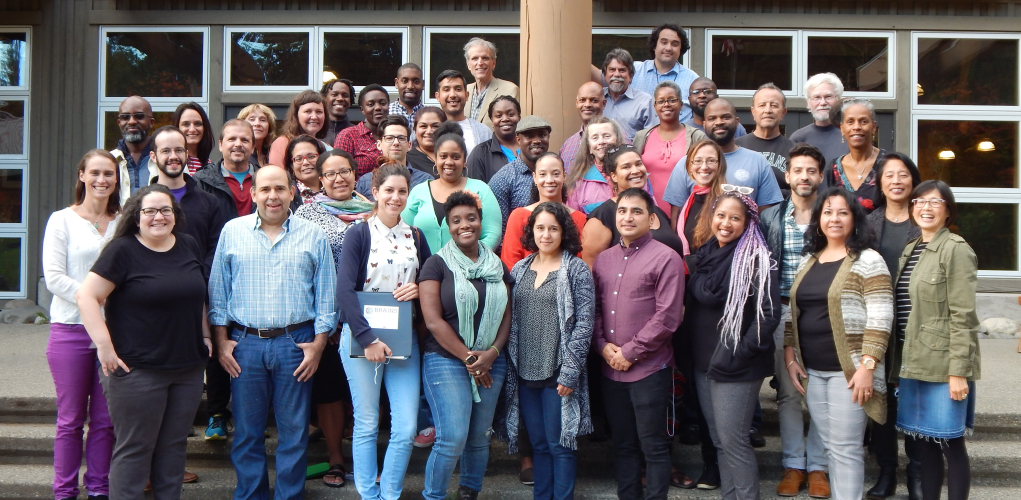Long-term Investment in BRAINS
BRAINS has received strong and consistent support from the National Institute for Neurological Disorders and Stroke (NINDS) since 2011. This long-term investment has enabled the BRAINS program to continually evolve in support of program participants as they advance through their careers. It has also allowed BRAINS to grow a community-centric professional development model that empowers participants to be intentional and strategic as they advance through their careers. The significant and sustainable impacts of the BRAINS community have thus not only broadened representation in neuroscience, but also increased retention and leadership in the neuroscience workforce. In this way, the BRAINS community has become part of the institutional change needed to create a more inclusive and equitable culture within neuroscience.

Evolution of the BRAINS Program
The BRAINS program has expanded and evolved as participants’ careers changed. While BRAINS was launched with an in-person Fellows symposium in 2013, the addition of a virtual platform expanded its reach in terms of the numbers of participants (Affiliates) as well as types of programmatic offerings. Interspersed between successive cohorts of Fellows/Affiliates emerged Cross-Cohort Symposia that brought together multiple cohorts of BRAINS participants to catalyze additional levels of community building, professional development and personal growth.
| Program Stages | Participant Pathways | Major Program Components |
|---|---|---|
| 2011 - 2016 | Fellows | Fellows Symposium, Peer Mentoring Circles, Continuous Career Invention |
| 2016 - 2021 | Fellows and Affiliates | Fellows Symposium, Affiliates Virtual Workshop Series, Peer Mentoring Circles, Fellows Cross-Cohort Symposium |
| 2021 - 2026 | Fellows and Affiliates | Fellows Symposium, Affiliates Virtual Workshop Series, Peer Coaching Circles, Fellows and Affiliates Cross-Cohort Symposium, Virtual Gatherings |
The BRAINS program complements other professional development programs led by NINDS that aim to expand the neuroscience workforce by providing a variety of types of research skills training (e.g. neurotechnological methods, grant writing), mentoring, networking, and providing research support.